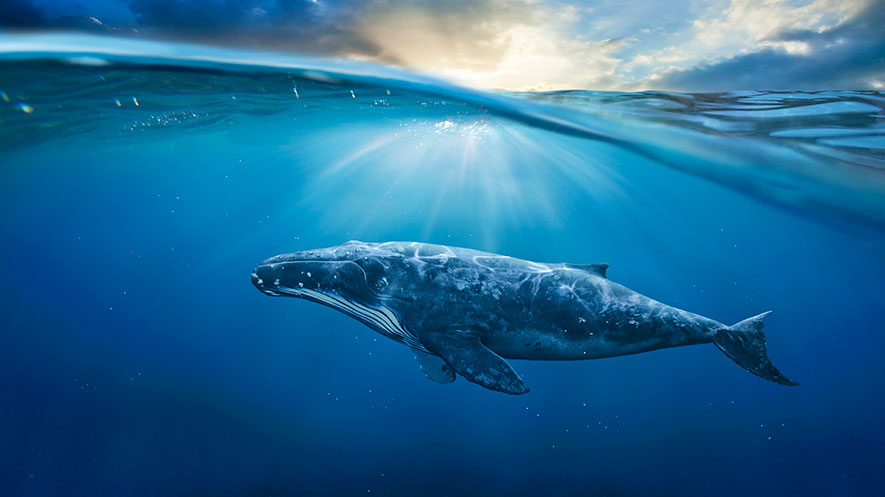New research from NOAA’s National Centers for Coastal Ocean Science (NCCOS) assesses the impacts that aquaculture gear and infrastructure may have on protected species.
Aquaculture already supplies more than half of the world’s seafood, and this contribution will likely rise dramatically over the next few decades. As coastal aquaculture expands, so does the potential for interactions with protected species and their habitats. While there are concerns that aquaculture gear could pose a risk to protected species, these findings show that risk can be minimized through proper siting, consistent monitoring, and best management practices.
As a case study, the report analyzed line mussel aquaculture gear interactions with protected species around the world, including certain sea turtles, marine mammals, and sea birds. Currently, negative interactions with protected species are more frequent with traditional fishing activities compared to aquaculture gear, but this could change with the continued expansion of aquaculture ventures. In order to prevent an increase in negative interactions, risk assessments and special planning measures should inform all future aquaculture siting, followed by consistent use of best management practices.
“This assessment will strengthen the ability of NOAA and other regulatory agencies to make science-based decisions and recommendations as part of the aquaculture permitting process,” explains NCCOS scientist and lead researcher James Morris. “We also, identified knowledge gaps, provided management recommendations, and highlighted areas of needed research.”
Further investigation into how protected species may interact with aquaculture could lead to effective modifications in farm gear to decrease harmful interactions. There is still a lack of scientific reporting on aquaculture-related entanglement frequency and severity of resulting injuries, mortality rates associated with interactions, and effective deterrent methods. Increasing domestic production through aquaculture can reduce U.S. reliance on imported seafood while also providing jobs and food security, but every effort should be made to ensure that this foreseeable industry growth occurs within a framework of environmental responsibility and ocean stewardship.
This was a joint effort between NCCOS, NOAA Fisheries Greater Atlantic Regional Fisheries Office Protected Resources Division, and the Office of Aquaculture, and was initiated in response to a 2015 workshop on entanglement risk to whales and turtles from New England mussel farms.
For more information on this assessment and other coastal planning tools for marine aquaculture click here.





